nature versus nurture
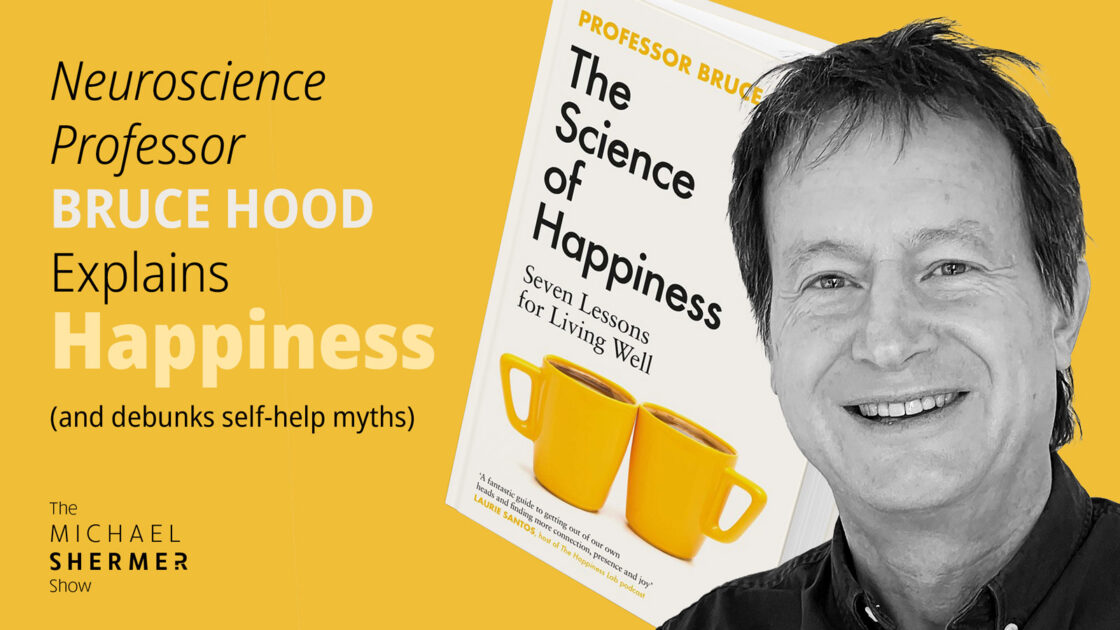
Shermer and Hood discuss: psychedelic drugs • defining the “good life” or “happiness” • measuring emotions • happiness as social contagion • eudaimonia (the pursuit of meaning) versus hedonism (the pursuit of pleasure) • genetics and heritability • cultural components • WEIRD people • The Big Five (OCEAN) • marriage and health • exercise and stress reduction • what the ancient Greeks got right about living the good life • how failure may actually be a key to more happiness…
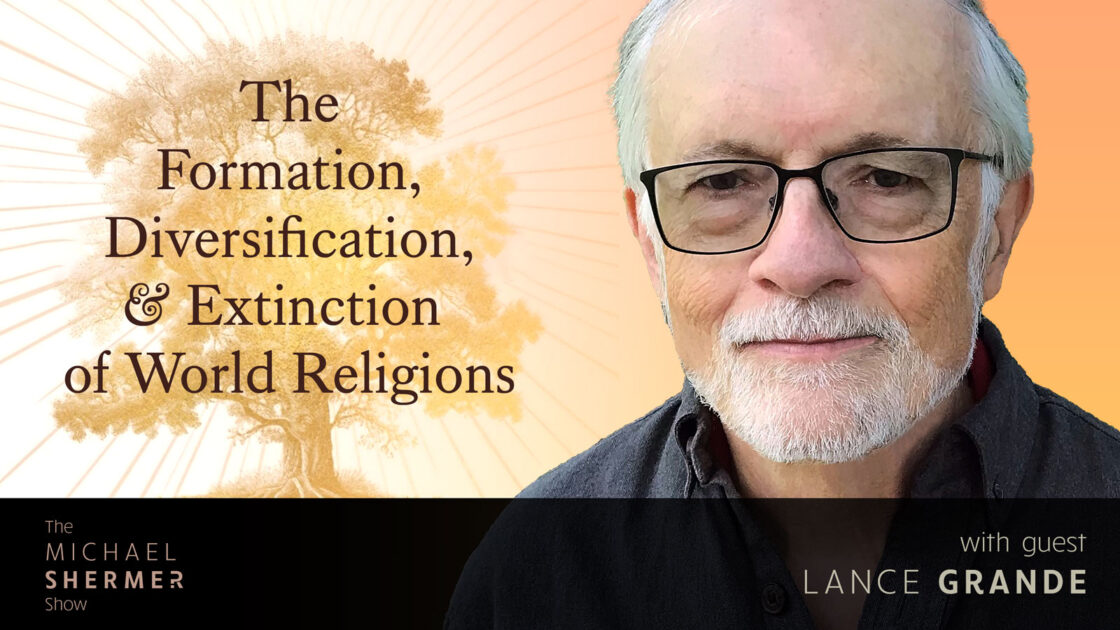
Lance Grande explores the diversity of religions using evolutionary systematics and philosophy. Grande examines the growth and interrelationships of hundreds of religions throughout history, tracing their formation, extinction, and diversification. Combining evolutionary theory with cultural records, he explores various world religions, including Asian cyclicism, polytheism, and monotheism, shedding new light on the development of organized religion.

Shermer and Stephens-Davidowitz discuss: why some countries produce so many more NBA players than others • the greatest NBA players adjusted for height • why tall NBA players are worse athletes than short NBA players • How much do NBA coaches matter and what do they do? • In a population of 8 billion today compared to centuries past, where are all the Mozarts, Beethovens, Da Vincis, Newtons, Darwins, etc.?
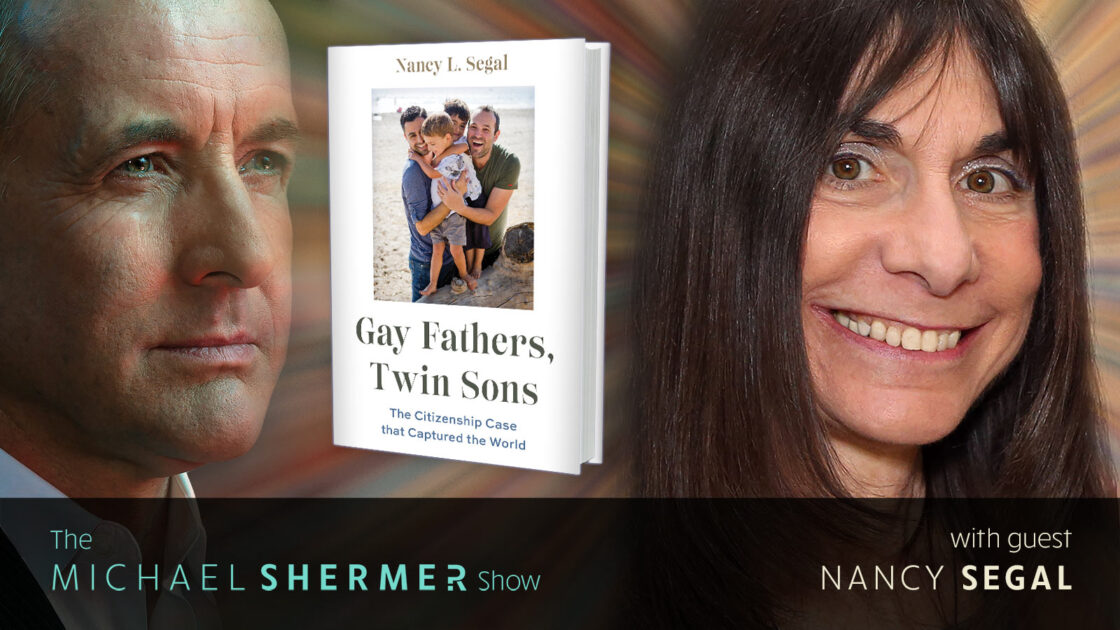
Shermer and Segal discuss: her historical interest in twins research and behavior genetics • the many different types of twins and family arrangements • twins separated accidentally • twins separated intentionally • twins reunited • a brief history of twins research • Josef Mengele • Minnesota Study of Twins Reared Apart • the gay fathers and twin sons story • immigration and naturalization law related to IVF, twins, gay couples, etc. • abortion • eugenics and the Nobel Prize sperm…
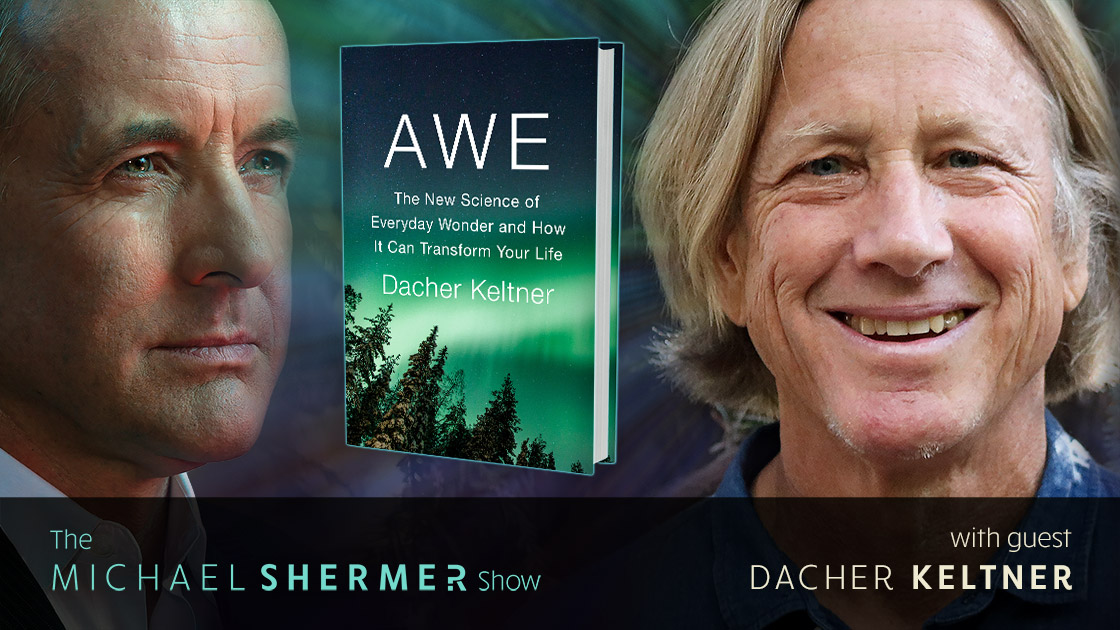
Shermer and Keltner discuss: the death of his brother and how this led to his study of awe • an operational definition of awe • the reliability (or unreliability) of self-report data in social science • how to quantify and measure the experience of awe • What are emotions and how can they be measured? • How has the scientific understanding of emotions changed? • predictors of awe: nature, music, art, dance, movement/exercise, love & friendships • awe in moral…
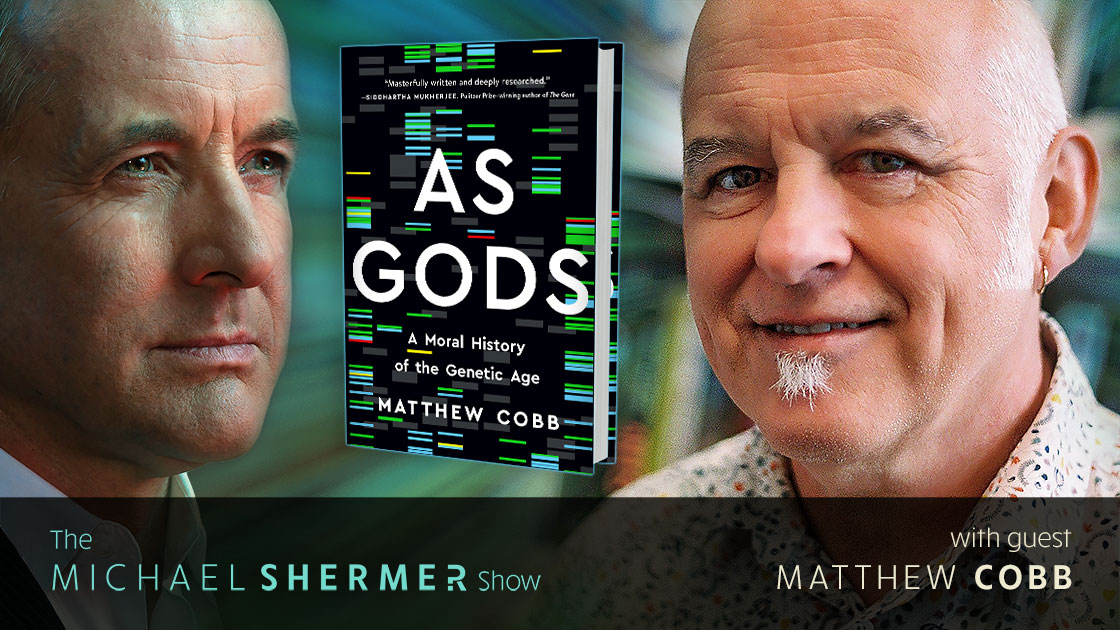
Shermer and Cobb discuss: objections to genetic engineering (political, religious, cultural) • selective breeding • recombinant DNA • the ethics of genetics • patenting life • gene therapy • gene editing • CRISPR • literature and films on the dangers of genetic engineering • bioweapons • 3 Laws of Behavior Genetics and what people fear about it.

Shermer and Berent discuss: nature/nurture genes/environment biology/culture • language and innate knowledge • what babies are born knowing • how people reason about human nature • dualism • essentialism • theory of mind • the nature of the self • innate beliefs in the soul and afterlife • free will and determinism • how people think about mental illness and disorders • how one’s theory of human nature effects one’s attitudes about nearly everything.
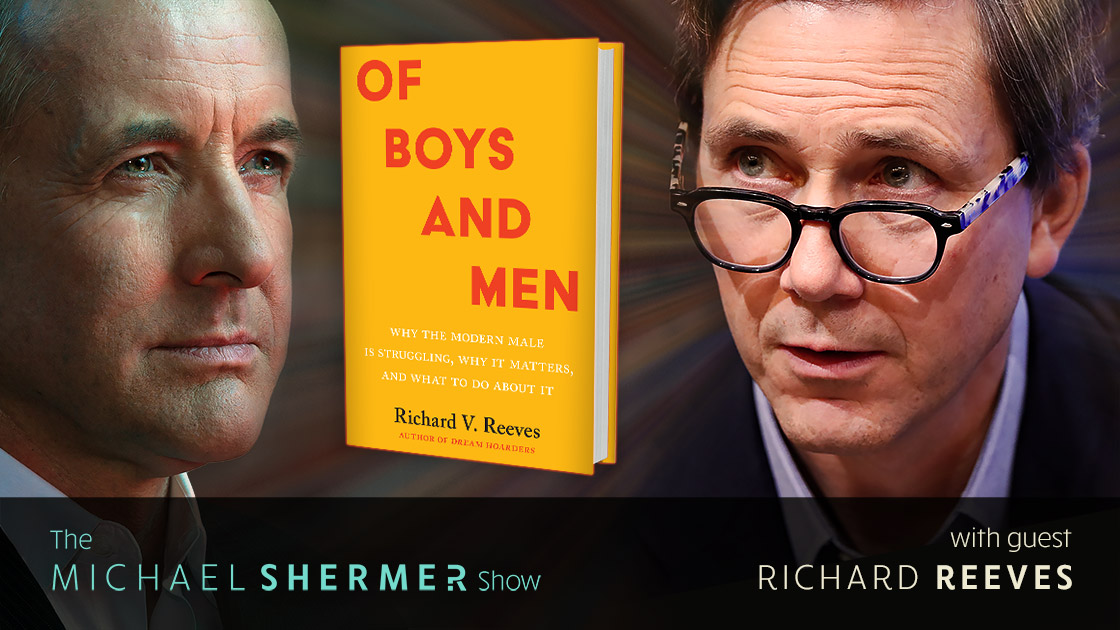
Shermer and Reeves discuss: comparison method: U.S. vs. other WERID countries • education • work/labor market • family • marriage • Divorce/custody/spousal support/child support • intersectionality I: Black boys and men vs. White boys and men • intersectionality II: poor boys and men vs. middle class/upper class boys and men • What is a man? (nature and nurture in the making of a male) • what the political left gets wrong about boys and men • what the political right…
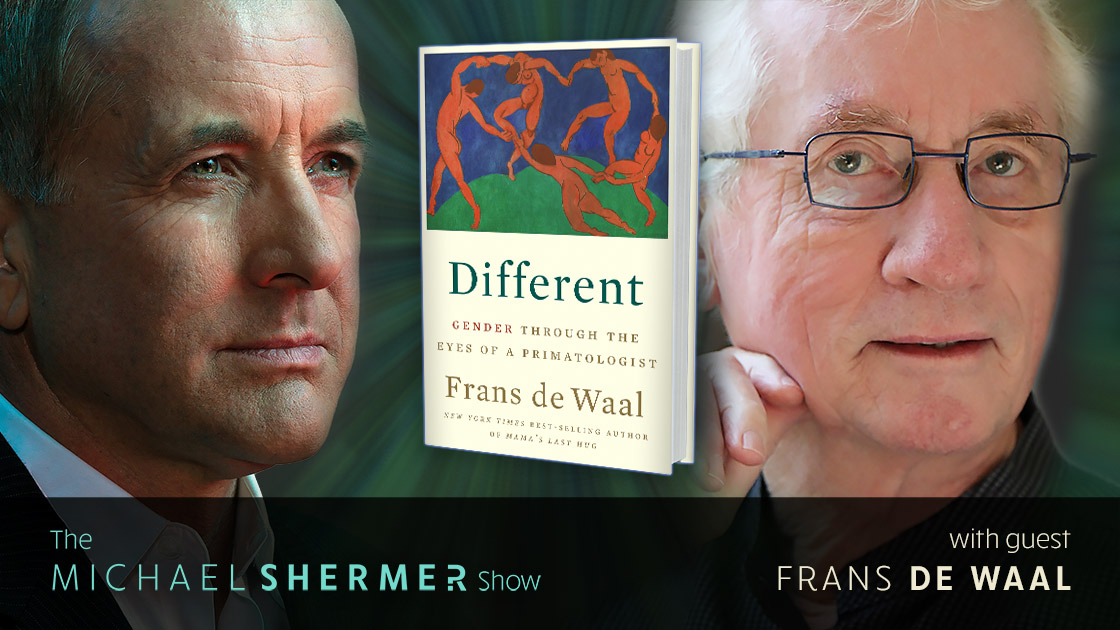
What is gender? How different are men and women? Are differences due to biological sex or to culture? How do they compare with what is known about our fellow primates? Do apes also culturally learn their sex roles or is “gender” uniquely human? Michael Shermer and Frans de Waal discuss sexual orientation, gender identity, and the limitations of the gender binary, exceptions to which are also found in other primates.

Michael Shermer and Jesse Singal discuss: how social scientists determine causality • cognitive priming • The Malcolm Gladwell-effect • self-help movements • power posing • positive psychology • Implicit Association Test • racism, gender, class, misogyny, bigotry • replication crisis • choice architecture • I.Q. • free will and determinism • nature/nurture and how lives turn out • abortion • and U.S. foreign policy.
Michael Shermer speaks with Jesse Singal about this new book: Why Fad Psychology Can’t Cure Our Social Ills.
Michael Shermer speaks with American psychologist Dr. Frank J. Sulloway about the relative roles of genes, environment, hard work, and luck in how lives turn out. For decades, Dr. Sulloway has employed evolutionary theory to understand how family dynamics affect personality development.
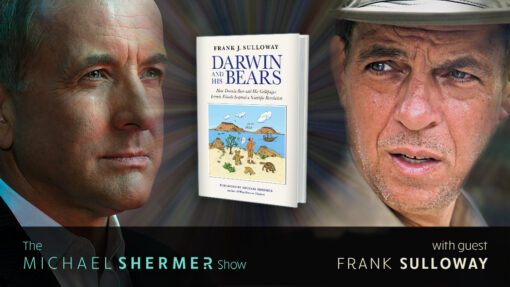
Michael Shermer speaks with American psychologist Dr. Frank J. Sulloway about the relative roles of genes, environment, hard work, and luck in how lives turn out. For decades, Dr. Sulloway has employed evolutionary theory to understand how family dynamics affect personality development.
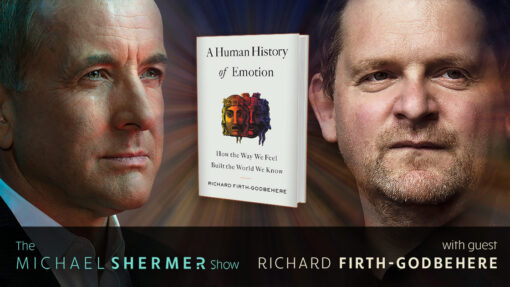
Michael Shermer speaks with Richard Firth-Godbehere his book A Human History of Emotion: How the Way We Feel Built the World We Know, drawing on psychology, neuroscience, philosophy, art, and religious history, and taking us on a fascinating tour of the central and often under-appreciated role emotions have played in human societies throughout history.
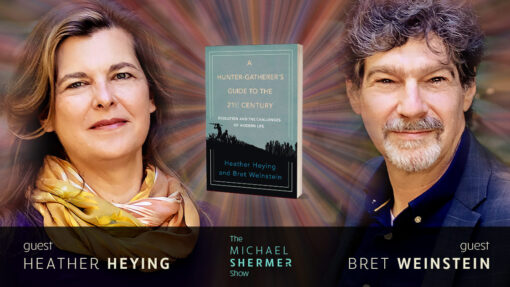
We are living through the most prosperous age in all of human history, yet people are more listless, divided and miserable than ever. In episode 209 Michael Shermer speaks with Heather Heying and Bret Weinstein about evolution and the challenges of modern life, based on their new book A Hunter-Gatherer’s Guide to the 21st Century.
In episode 209 Michael Shermer speaks with Heather Heying and Bret Weinstein about evolution and the challenges of modern life, based on their new book A Hunter-Gatherer’s Guide to the 21st Century. PLUS, new Skeptic digital subscriptions are on sale for only $6.99 for 4 issues until Sept. 26, 2021!

In episode 192, Michael speaks with husband-and-wife team Lesley Newson and Peter Richerson about the deep history of humankind discussed in their book, A Story of Us, in which they present this rich narrative and explain how the evolution of our genes relates to the evolution of our cultures.
In episode 192, Michael speaks with husband-and-wife team Lesley Newson and Peter Richerson about the deep history of humankind discussed in their book, A Story of Us, in which they present this rich narrative and explain how the evolution of our genes relates to the evolution of our cultures.
In Science Salon # 130, Michael Shermer speaks with Debra Soh — a neuroscientist who specializes in gender, sex, and sexual orientation — about her new book: The End of Gender: Debunking the Myths About Sex and Identity in Our Society.
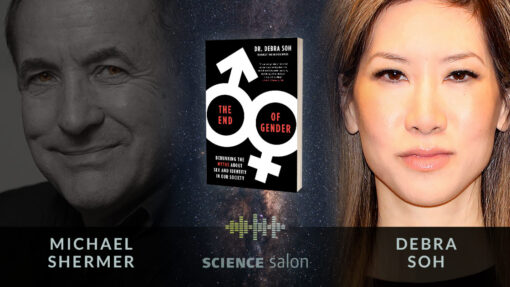
In Science Salon # 130, Michael Shermer speaks with Debra Soh — a neuroscientist who specializes in gender, sex, and sexual orientation — about her new book: The End of Gender: Debunking the Myths About Sex and Identity in Our Society.
NEXT →























